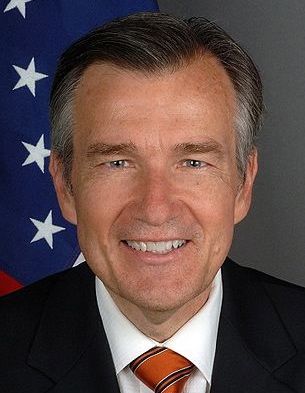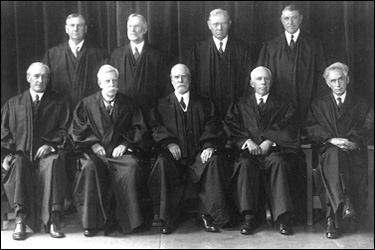Sources of international law are, in rank of precedence: international conventions, international custom, general principles of law recognized by civilized nations, and judicial decisions and the teachings of the most highly qualified publicists of the various nations (Statute of the International Court of Justice, Article 38). The legislation of every state, to include the United States of America and its Congress, is not a source of international law, but rather a source of municipal law of the state whose legislature enacted it. In The Lotus, the International Court stated, “Now the first and foremost restriction imposed by international law upon a State is that—failing the existence of a permissive rule to the contrary—it may not exercise its power in any form in the territory of another State (Lotus, PCIJ, ser. A no. 10, 18 (1927).” According to Crawford, derogation of this principle will not be presumed, which he refers to as the Lotus presumption (James Crawford, The Creation of States in International Law 34 (2d ed. 2006).
Since Congressional legislation, whether by a statute or a joint resolution, has no extraterritorial effect, it is not a source of international law, which “governs relations between independent States (Lotus, at 18).” The U.S. Supreme Court has always adhered to this principle. The U.S. Supreme Court stated,
“Neither the Constitution nor the laws passed in pursuance of it have any force in foreign territory unless in respect of our own citizens, and operations of the nation in such territory must be governed by treaties, international understandings and compacts, and the principles of international law (United States v. Curtiss Wright Export Corp., 299 U.S. 304, 318 (1936).”
The Supreme Court also concluded, “The laws of no nation can justly extend beyond its own territories except so far as regards its own citizens. They can have no force to control the sovereignty or rights of any other nation within its own jurisdiction (The Apollon, 22 U.S. 362, 370 (1824).” Adhering to this principle, the U.S. Attorney General’s Office of  Legal Counsel was befuddled by Congress’s annexation of the Hawaiian Islands by a joint resolution. In a 1988 legal opinion, the Office of Legal Counsel addressed the annexation of the Hawaiian Islands by joint resolution. Douglas Kmiec, Acting Assistant Attorney General, authored the memorandum for Abraham D. Sofaer, legal advisor to the U.S. State Department. After covering the limitation of Congressional authority and the objections made by members of the Congress, Kmiec concluded,
Legal Counsel was befuddled by Congress’s annexation of the Hawaiian Islands by a joint resolution. In a 1988 legal opinion, the Office of Legal Counsel addressed the annexation of the Hawaiian Islands by joint resolution. Douglas Kmiec, Acting Assistant Attorney General, authored the memorandum for Abraham D. Sofaer, legal advisor to the U.S. State Department. After covering the limitation of Congressional authority and the objections made by members of the Congress, Kmiec concluded,
“Notwithstanding these constitutional objections, Congress approved the joint resolution and President McKinley signed the measure in 1898. Nevertheless, whether this action demonstrates the constitutional power of Congress to acquire territory is certainly questionable. … It is therefore unclear which constitutional power Congress exercised when it acquired Hawaii by joint resolution. Accordingly, it is doubtful that the acquisition of Hawaii can serve as an appropriate precedent for a congressional assertion of sovereignty over an extended territorial sea (Douglas W. Kmiec, Legal Issues Raised by Proposed Presidential Proclamation To Extend the Territorial Sea, 12 Opinions of the Office of Legal Counsel 238, 252 (1988).”
This 1988 opinion clearly undermines the claim of sovereignty over the Hawaiian Islands by the United States. If the Attorney General’s Office of Legal Counsel is “unclear” as to the authority of Congress to annex the Hawaiian Islands, it surely cannot be considered as a valid demonstration of legal title by the United States as the successor to the Hawaiian Kingdom under international law. If the United States is not the successor, then the presumption of the Hawaiian Kingdom’s existence as an independent state is maintained.


I often wonder why you keep bringing this issue of U.S. Congressional limitations to our attention. I know you are an educator so I wondered what is it that you are trying to teach us about Congressional limitations and how it affects us and our occupation. Growing up I recall some of my teachers saying ..you got the basics, now go ahead and think it through and work it out.
All this time I missed the most important point regarding the State of Hawaii and how it relates to our occupation. I had it wrong, I finally got it and it blew me away.
You know you could’ve made it easy and just gave us the answer. (LOL)
Mahalo for the lesson.
Aloha Kekoa,
Please share your aha moment regarding the State of Hawaii/occupation.
Mahalo for your well thought out view points.
Aloha Bill, I believe in due time the teacher will provide the information that needs to be conveyed from his postings. If there is one thing I learned from this site it’s that every post has a purpose and lesson. Everyone learns at their own pace as they piece together the information. Putting the pieces together is the learning process that helps you understand how things work and how you need to apply it. I am not the teacher and should not give you the answer but I can give you questions that hopefully can get you thinking of the answer and how it can be applied for our benefit in our occupation.
What are the definitions of an international armed conflict and an occupation? Can their be an international armed conflict if one of the states involved puts up no resistance? Is the occupier in control of parts of the states territory or has total control. Is the occupier subject to the Laws of war on land, Geneva Convention, Hague Regulations and Humanitarian Laws in Armed Conflicts? If Congress created the State of Hawaii (SOH) is the SOH obligated to operate under the U.S. constitution, treaties, Geneva conventions, Hague Regulations, Rules of war on land and Humanitarian laws in Armed Conflicts? If Congressional legislation has no extra territorial force beyond it’s borders than is the SOH a gov’t in the occupied territory? Under the rules of war on land, etc..what is the definition of the SOH? Who’s or what’s in control of the occupied territory?
Put on your thinking caps gang.
Aloha
Mahalo for the continued compilation of evidence that demonstrates without doubt that “the presumption of the Hawaiian Kingdom’s existence as an independent state is maintained.” Layering evidence provides added insurance that backup evidence is always available regardless of what layer is denied.
Aloha Bill, I guess I can give you the answer now, since the teacher just posted it on the next thread. The State of Hawaii under the rules of war on land is defined as an Armed Force.
The State of Hawaii officials now personally hold a huge amount of vicarious liability for violations of protected persons rights and for not applying the laws of occupation. Since the State of Hawaii is the one with actual control of 80% of the occupied territory they are obligated under their own law to apply the laws of occupation and provide for the Deoccupation. Prior to this I thought it was the Kuleana of the USPACOM. Hope this helps.
Kekoa,
Mahalo for your responses.
It appears to be a Game Changer as you mentioned.
Appreciate your insight and the research/writings from the Teacher.
Never thought the State of Hawaii is the bottom of this iceberg
Aloha . . . recently came across your site and enjoy it very much. It is great seeing other “educated” opinions! Mahalo for your mana`o!